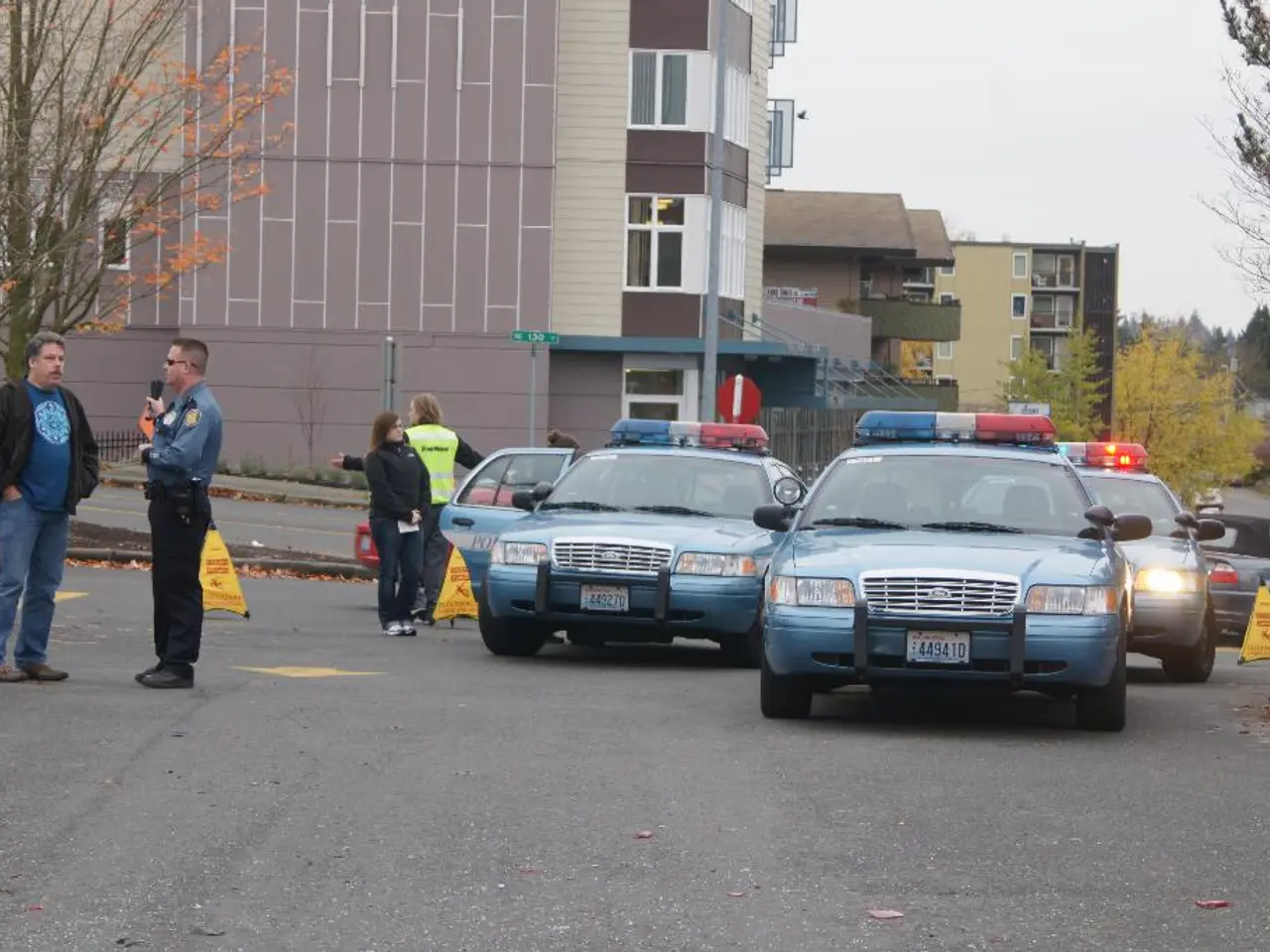"Urgent Appeal - Potential Threat to Germany's Economy Sparks Mass Protest Planned for January 29"
The German economy is facing a critical juncture, according to various economic associations, who are urging immediate reforms. This call for action is not just directed at Economics Minister Robert Habeck, but also at Federal Chancellor Olaf Scholz.
Marie-Christine Ostermann, President of the Association DIE FAMILIENUNTERNEHMER, has warned that the German economy is shrinking, companies are cutting jobs, and investments are being made abroad rather than in Germany. The situation is so dire, she claims, that the future of the country is at stake due to bad economic policy.
Thomas Hoppe, Federal Chairman of DIE JUNGEN UNTERNEHMER, echoes these concerns, stating that the current red-green federal government is steering towards the economic abyss. He emphasizes that the SPD, Greens, BSW, and the Left Party plan to accelerate this trend, which must stop.
The organizers of the Economic Emergency Day, an event scheduled for January 29, 2025, in Germany, warn of serious economic problems, including high energy prices, excessive bureaucracy, and increasing skilled labor shortages. The event, which will take place in Berlin and numerous other cities, is expected to attract tens of thousands of participants, including entrepreneurs, employees, and representatives of various economic associations.
The official website of the Economic Emergency Day states that the German economy is losing attractiveness at an unprecedented rate, with domestic companies moving away and international investors staying away. The Initiative New Social Market Economy, one of the organizers, calls for relief for companies through tax cuts, less bureaucracy, and investments in innovations.
However, specific economic reforms demanded during the Economic Emergency Day on January 29, 2025, are not detailed in the available information. Decision-makers likely targeted would be the Chancellor and federal ministers responsible for finance, economy, and energy.
The broader political and economic context in Germany around 2025 includes challenges such as energy transition, infrastructure, digitalization, high rents, defense spending, and the constraints on reform imposed by the fragmented political landscape and coalition limitations. Key political decision-makers relevant to economic reforms are the Federal Chancellor and ministers of finance, economics, energy, and other related portfolios, who also participate in newly formed bodies like the National Security Council to coordinate policy during crises.
Whether the Economic Emergency Day will lead to concrete political measures remains uncertain. However, the event sends a clear signal that the economic challenges facing Germany can no longer be ignored.
What changes could be implemented to address the financial struggles and implications for business, politics, and general-news in Germany? With the German economy facing a critical juncture, the Economic Emergency Day on January 29, 2025, might provide a platform for demanding specific economic reforms directed at the Federal Chancellor, Economics Minister, and Finance Minister, as well as other key political decision-makers.




